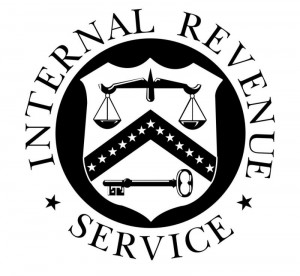Last week, the U.S. Supreme Court granted certiorari in two cases that may decide the constitutionality of same-sex marriage. One of the two cases, U.S. v. Windsor, came to the Court by way of the tax code. In Windsor the high court will consider whether the decedant’s same-sex spouse qualified for the unlimited marital deduction under IRC Section 2056(a). Whether, and how, the court ultimately rules remains to be seen but the tax code may once again be the basis for a far-reaching decision out of the Supreme Court.
Monthly Archives: December 2012
Tax Court: No Penalties for Son of Boss Participants
In a memorandum opinion related to a division opinion we reported earlier this year, the Tax Court has found that underpayment and accuracy-related penalties asserted against investors in a “Son of Boss” tax shelter, did not apply to the participant taxpayers because they established reasonable cause under IRC § 6664(c)(1). However, the Court did sustain the government’s determination, which apparently was uncontested by the taxpayers, that they had underreported tax because of their involvement with the Son of Boss transactions.
The opinion offers a thorough discussion of the taxpayers’ conduct and the applicable standards for reasonable cause. The language and findings may provide useful guidance for taxpayers, and their counsel, seeking to avoid penalties by establishing reliance upon their advisors.
Read the entire opinion here:
Rawls v. Commissioner, T.C. Memo. 2012-340
IRS Releases Proposed Regs and FAQs on 3.8% Net Investment Income Tax
 With tax provisions set to expire on payroll taxes, capital gains rates, income tax rates, AMT exemptions, estate taxes, and nearly everything else, the tax picture for 2013 is anything but clear.
With tax provisions set to expire on payroll taxes, capital gains rates, income tax rates, AMT exemptions, estate taxes, and nearly everything else, the tax picture for 2013 is anything but clear.
One thing that we can expect with certainty on January 1, 2013, is the introduction of the 3.8% investment tax under new Internal Revenue Code Section 1411. The new provision adds a 3.8% tax on the “net investment income” of individuals, estates, and trusts with modified adjusted gross income in excess of the threshold amounts of:
- $250,000 for joint returns and surviving spouses;
- $125,000 for married taxpayers filing separately; and
- $200,000 for everyone else.
Until now, there was little guidance on the details of this provision from the Patient Protection and Affordable Care Act (Obamacare). The Internal Revenue Service has now provided guidance in the form of proposed regulations and Frequently Asked Questions (FAQs).
Ambitious practitioners have until March 5, 2013, to submit comments on the proposed rulemaking.

